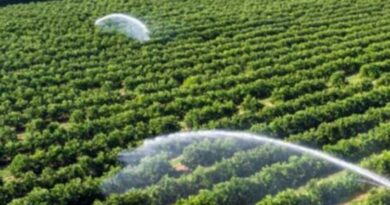International partnership on the co-benefits of blue carbon restoration
05 August 2022, UK: An international partnership of blue carbon experts from the James Hutton Institute, the University of St Andrews, the Norwegian Geological Survey, and University College Dublin has been awarded funding under the Blue Carbon International Policy Challenge (BCIPC) to explore opportunities for maximising the co-benefits of blue carbon restoration projects in Scotland.
Blue carbon is the carbon captured by the atmosphere and stored by coastal and marine ecosystems, including salt marshes, seagrass beds, kelp forests, and biogenic reefs. These ecosystems are vital allies in combating the global climate emergency, but if they are degraded or lost, the carbon previously stored will be released back to the atmosphere.
Blue carbon ecosystems can also contribute to ecosystem-based adaptation to climate change by acting as the first line of defence for coastal communities against storm surges, saltwater intrusion and shoreline erosion. They also provide many non-climatic benefits, such as shelter and food for terrestrial and marine wildlife, nursery habitat for commercial and recreational fisheries, recreational opportunities, and retention and recycling of land-derived pollutants before they reach the ocean.
The partnership will review current blue carbon ecosystem protection, restoration and creation approaches and their co-benefits to help understand policy and research implications for nature, the blue economy, and communities.
Dr Ioanna Akoumianaki, senior science-policy specialist at the Institute and project lead, said: “As recently highlighted by the UK Climate Change Committee, many of the risks to blue carbon ecosystems, such as sediment and nutrient run-off, can only be mitigated by making land-based interventions.
“Here at the Institute, we have gained experience in land management and restoration projects. We will explore how catchment-to-sea flows of carbon, sediment, ecosystem services and funding as well as knowledge and experiences in catchment restoration can help to deliver sustainable blue carbon ecosystem-based management.”
The BCIPC, launched in April by the Minister for Environment and Land Reform, Mairi McAllan MSP, will bring together research and policy specialists from Scotland and overseas to identify ways to move from research to action.
On announcing the funding, Minister McAllan said: “We are delighted to support these projects, which bring international partners together to achieve the shared goal of furthering knowledge and understanding of blue carbon to mitigate and adapt to climate change impacts.
“Working collaboratively will have collective benefits for our global environments, economies and communities including accelerating action on the future challenges we all face in delivering on our COP27 blue carbon ambitions.”
Also Read: Top 7 Tractors in India from 20 HP to 60+ HP















